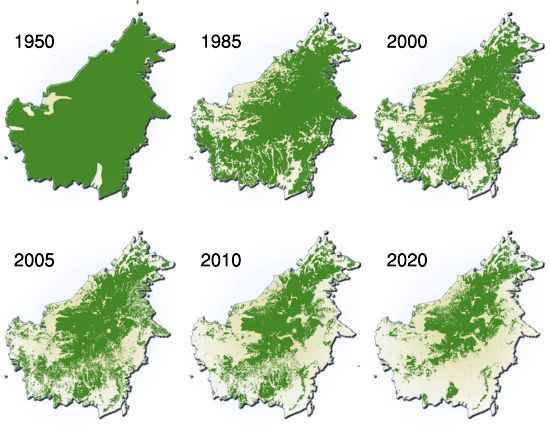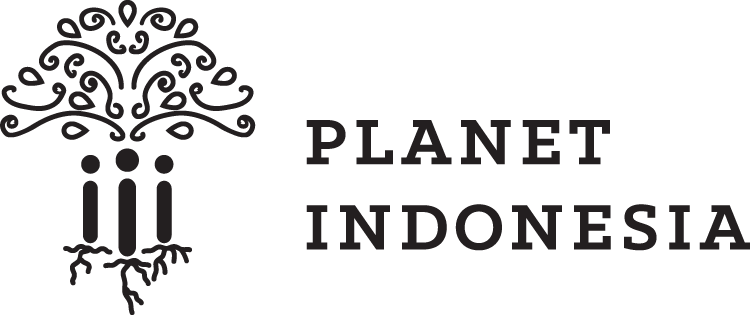Borneo's rainforest under pressure
One hundred years ago, Borneo was mostly covered by forests. Since then, the island has experienced a massive shift: rainforests have been cleared and transformed into other forms of land use. In the last 40 years 30 percent of Borneo's forests have been destroyed.

The main reason for the deforestation of Borneo's rainforests is the expansion of palm oil, wood and cellulose plantations. But also clearing for small-scale farming, forest fires, and illegal logging as well as new roads and dams contribute to the deforestation. Weak law enforcement by the state’s authorities and the precarious poverty of local communities increases the pressure on the forests.
Indonesia has the highest rate of tropical rainforest loss. If the present deforestation rates continue, only 24 percent of the island will still be covered by forests in 2030. As a consequence, many species will become extinct and climate change will be accelerated.
That's how we help: forest patrols
Illegal wildlife trade threatens biodiversity in Borneo. Indonesia has recently become an important demand and transit center for the international wildlife trade. Many of the traded species are threatened with extinction and therefore protected. Together with the ongoing habitat loss, this leads to the further decline of Indonesian biodiversity.
GREEN BOOTS supports Planet Indonesia to conduct patrols in the forest areas. The patrols serve to deter illegal activities such as poaching or logging. The project areas cover around 350,000 hectares of rainforest in Gunung Naning and Gunung Nyiut and are inhabited by the indigenous people known as Dayak.
Each patrol unit consists of one park ranger, three local residents and one Planet Indonesia member. The patrols cover over 300 kilometers each month. In addition to recording illegal activities, the patrols also record the presence of endangered species, such as the endangered shield hornbill. This results in a monthly report that goes to the relevant government officials, law enforcement agencies and also to village leaders and the local partner organization.
The patrols are equipped with satellite phones, smartphones for data collection, GPS devices, and supplies and hammocks. All patrols are pre-approved by the government.
That's how we help: planting trees
The protection of the existing rainforests is not enough to conserve the endangered species. Two remaining rainforest areas are connected by planting trees. In these so called “agro-forestry systems” the Dayak grow local fruit species to improve food security and they plant indigenous trees to preserve biodiversity. After some time, these agro-forestry systems connect the two rainforest patches as wildlife corridors.
The plantations are carried out exclusively by individuals. It is therefore not a central reforestation project, but hundreds of Dayak participate in the project. Each person has his or her own tree nursery. The indigenous people get an incentive for each planted native seedling and a further incentive if the seedling is still alive after one year.
Each agricultural cooperative has appointed local project leaders who organize and supervise the tree planting on the plots. Employees of the local partner organization also carry out independent inspections.
Previous successes
Since the beginning of the Planet Indonesia’s program in 2016, the deforestation of primary rainforest in the project area has been reduced by half. The data obtained by the patrols also show a significant decline in illegal activities. 3,200 households and 15,000 residents have already joined the cooperation and participate in the programs.





